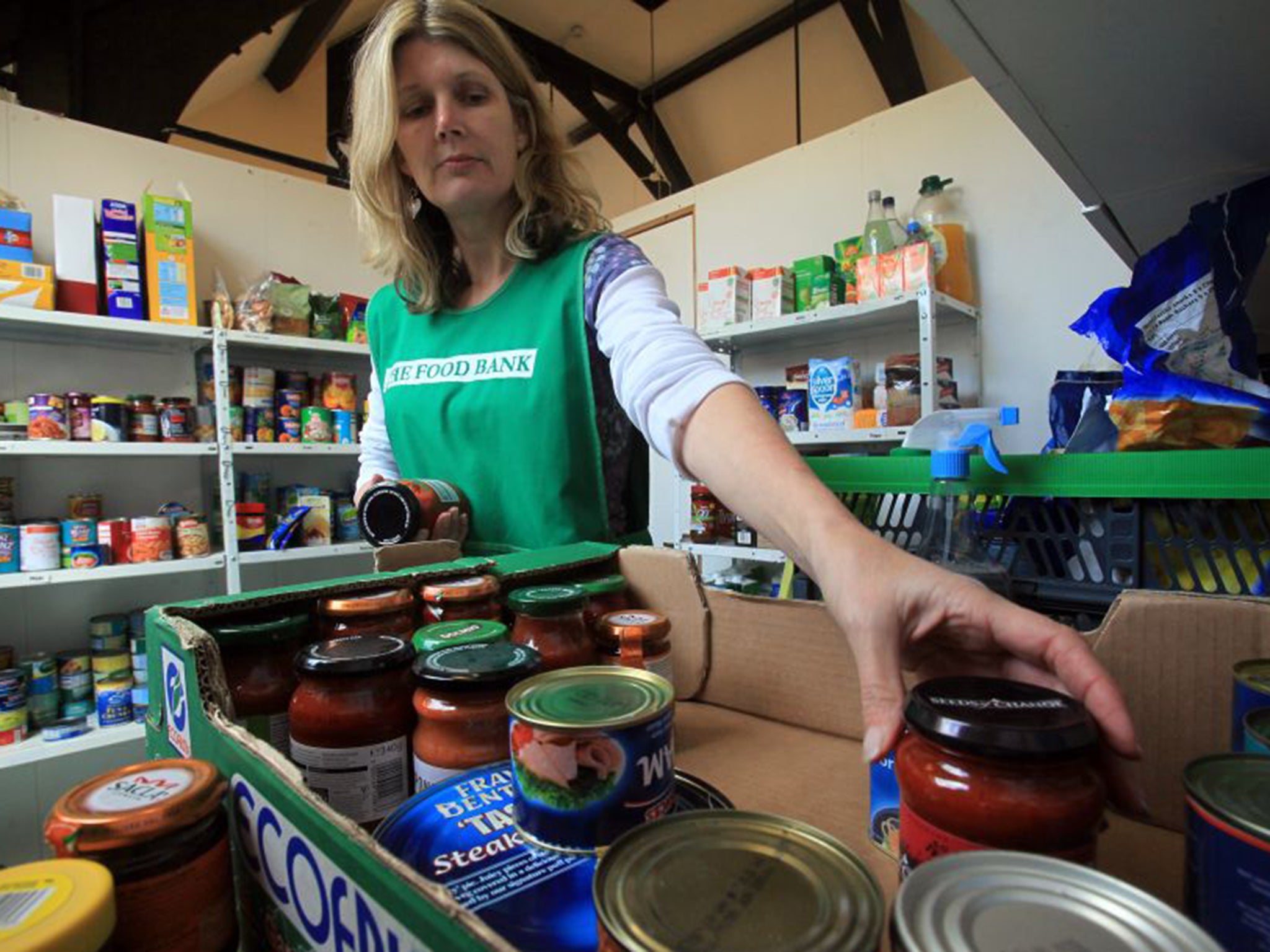Your support helps us to tell the story
From reproductive rights to climate change to Big Tech, The Independent is on the ground when the story is developing. Whether it's investigating the financials of Elon Musk's pro-Trump PAC or producing our latest documentary, 'The A Word', which shines a light on the American women fighting for reproductive rights, we know how important it is to parse out the facts from the messaging.
At such a critical moment in US history, we need reporters on the ground. Your donation allows us to keep sending journalists to speak to both sides of the story.
The Independent is trusted by Americans across the entire political spectrum. And unlike many other quality news outlets, we choose not to lock Americans out of our reporting and analysis with paywalls. We believe quality journalism should be available to everyone, paid for by those who can afford it.
Your support makes all the difference.Missing out on free school meals for just one week at half term is tipping some families into acute food poverty, according to charity workers familiar with demand patterns at food banks.
Food bank charities have for some time come to expect higher demand during the long summer holidays when children do not attend school for weeks and parents have to buy more food.
But food banks are now facing spikes in referrals of families with children over half term – when youngsters miss out of just five child-sized portions from school.
One foodbank at Southchuch in Essex has seen such a surge in referrals over half term that it has run out of some items, according to the local press.
“During the school holidays we do see an increase in those referred to our foodbanks from the various organisations with partner with, because parents obviously struggle to provide that extra meal with the children and pay the bills,” Adrian Curtis, the foodbank director of the charity the Trussell Trust, which set up the food bank, told the Independent.
“I think for some families that’s enough to trip them into a crisis, where they’re referred to our foodbanks.”

Mr Curtis said increased need during school holidays was so pronounced that the Trust was encouraging its foodbanks, which are run by local teams, to lay on extra hot meals for children during the school holidays.
“Many of our foodbanks have begun to develop breakfast clubs and work with other organisations who provide meals during the school holidays to address exactly this issue,” he said.
“We’re beginning to encourage and work with our food banks [so] more of them [are] able to take up these projects and run them alongside our foodbanks to address this need.”
Nobody can use a foodbank without being referred by a professional care organisation such as a social worker, citizens’ advice bureau, or jobcentre.
A spike in demand suggests that more people are judged by care organisations as being in acute need at that particular time.
Trussell Trust food banks saw a 38% rise in usage over summer 2014 compared to the same period the year before, with 30% of those referred being children.
“Over half-term we had more families than usual, but that’s to be expected as children aren’t having school meals,” Southchurch warehouse coordinator Cass Francis told local newspaper the Southend Echo.
The Trussell Trust stressed that that although volunteers had run out of certain items after the half-term rush, they were still able to operate and that the situation was not catastrophic.
“It’s rare for our foodbanks to run low on food; sometimes certain items are low but we are very keen to provide nutritionally balanced parcels,” Mr Curtis said.
About 50% of referrals to food banks in the UK are due to issues relating to the welfare system, according to a report released by the Trust at the end of 2014.

Join our commenting forum
Join thought-provoking conversations, follow other Independent readers and see their replies
Comments